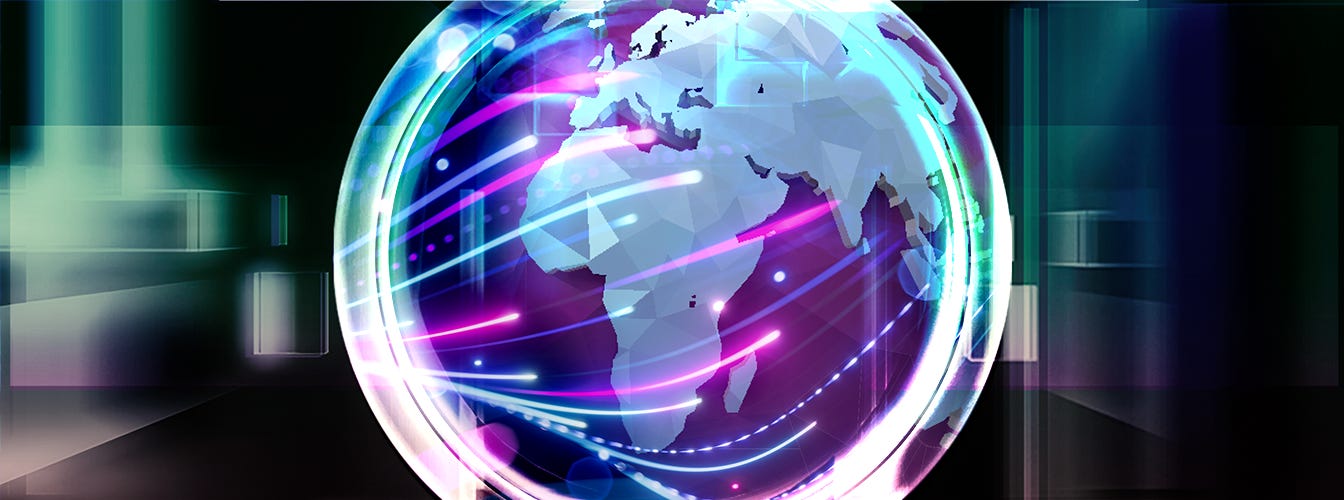A better world for people and tech together
Emerging technologies are bound to have an impact on the tech+human equation. Can we shape it in a positive way?
I’m not a typical tech geek. I’m not super interested in all the cool things that technology can do, although it can, admittedly, do some very cool things. I’m actually not even that interested in technology’s business value. I am, however, obsessed with the impact of tech on society and the role of the human in our increasingly intertwined tech+human equation.
At this moment in the history of technology adoption, AI sits squarely at center stage. As AI becomes more ubiquitous and sophisticated, it has the potential to transform various aspects of our lives, work, and society. But it could also pose significant ethical, social, and economic risks that need to be thoughtfully addressed and mitigated. Thankfully, smart minds at Deloitte and elsewhere are exploring how to advance human-AI collaboration while mitigating these risks. Perhaps more than any other technology, the progress of AI requires businesses to protect and maintain human dignity and well-being going forward.

Along those lines, while AI might be at the center of today’s technology stage, it has plenty of co-stars that we’d be wise to examine under the same microscope. Let’s take a look at the impending risks and benefits of other emerging technologies:
Chatbots and virtual assistants can improve customer service and productivity, but can also create challenges for human communication and empathy. For example, they can provide faster and more accurate responses to customer queries but may lack the emotional intelligence and social skills required to create and maintain human connection.
Social media platforms can foster online communities and activism but can also amplify misinformation and polarization. They can also be exploited by those who seek to spread false or misleading information, manipulate public opinion, or interfere with democratic processes.
Self-driving cars have the potential to revolutionize transportation by reducing accidents and emissions, improving traffic efficiency, and increasing mobility and convenience. However, they also raise complex ethical and legal dilemmas, and their widespread adoption could have profound social implications for the future of work, urban planning, public transportation, and personal privacy.
Biotechnology and gene editing can advance medicine and agriculture, but they also raise ethical and social questions about human enhancement and modification. For example, they can enable the development of new treatments and cures for diseases, but they could also be misused to create “designer babies” or other unintended consequences.
Augmented and virtual reality can create immersive and engaging experiences that delight audiences, but they can also have psychological and physical effects that aren’t fully understood yet. For example, they can enhance learning, entertainment, and social interaction, but they can also cause addiction, isolation, and disorientation.

Blockchain and cryptocurrency can enable decentralized and transparent transactions, but they also pose challenges for regulation and security. For instance, they can facilitate peer-to-peer exchanges, reduce transaction costs, and increase trust and accountability, but they can also enable illicit activities and expose users to cyberattacks.
Facial recognition technology can enhance security and convenience, but can also raise privacy and bias concerns. It can help identify criminals, missing persons, or authorized users of a service but it can also enable mass surveillance, identity theft, or discrimination based on race, gender, or age.
Getting ahead of these divergent possibilities requires asking the right questions of the technologies that are bound to shape our lives. As I consider these technologies, I keep coming back to the same handful of questions that reflect some of our most pressing challenges and opportunities:
What is the impact of emerging tech on work, ethics, management, and societal structures?
How can businesses ensure that tech is developed and deployed in line with human values and interests?
How can businesses ensure that all humans have equitable access to tech and its myriad benefits?
How can businesses leverage these technologies to enhance, rather than replace, human capabilities and roles?
How can businesses prepare themselves and future generations for the changing nature and demands of work?
We all have a role to play in answering these questions in our collective future. We’ve previously waxed poetic on this blog about the value of soft skills such as critical thinking, communication, and creativity in the age of AI and the rest of the emerging technologies mentioned above. Humans with an abundance of these skills will be needed to tap into these technologies’ potential for positive impact and help address the risks and challenges they pose. We will be the ones who help design and use these technologies in ways that improve rather than undermine people, society, and culture.
— Caroline Brown, Editorial and Production Team Lead, Deloitte Office of the CTO






